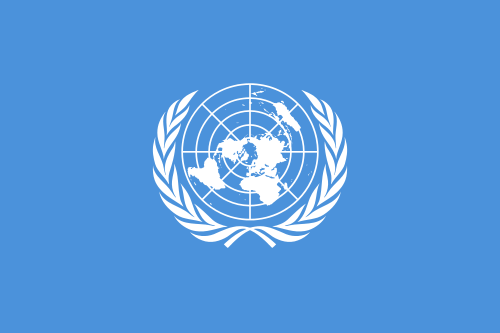Tim Worstall is not impressed with a new study out of Finland which recommends that the United Nations become much more involved in organizing and directing the lives of everyone on the planet … for our own good, of course:
We’ve another of those pieces of environmental drivel on offer to us. Here it’s the considered opinions of some Finnish knownothings on what is necessary to achieve the UN’s Sustainable Development Goals. The basis of which is that we should all prepare to be rather poorer. No, not because the Earth is running out of stuff to make us richer but because our Finnish knownothings are recommending that the UN take charge of things and forcibly make us poorer.
This is perhaps not the correct manner of running the global economy.
[…]
That’s all entirely drivel, of course. Capitalism doesn’t depend upon cheap fossil fuels nor even cheap energy. It’s just an economic system in which we have private property. Including the value added belonging to the people who own the property which adds the value. That’s really all it is too. Profit belongs to the people providing the capital – this is definitional by the way. For that’s what we define profit as, that part of the returns from an activity which go to those who provide the capital.
There is absolutely nothing at all which requires that energy, or any natural resource, be of any particular price nor level of price. All we are saying when we recommend capitalism is that the system seems to work better when those who make a profit get to keep it. Our economic definition of profit being when value of output is greater than the costs of inputs. Who gets those profits is definitional about capitalism. Any and every economic system is trying to produce profits. Because any and every economic system is trying to add value to inputs, trying to create value.
[…]
There’s a remarkable lack of reasoning as to why international trade needs to be limited or regulated. If we’re facing more expensive energy then we should be doing more of it, not less. But then perhaps those doing bio- and physics don’t know that Adam Smith pointed out we’d do better getting the wine from Bourdeaux rather than growing the grapes in Scotland. Or even that David Ricardo launched an entire subset of economics with his observation that trade uses fewer resources than non-trade. I mean, it is possible that they’re just ignorant of the most basic points here, isn’t it?
They’ve also not grasped that good life and economic growth part at all. No one actually producing economic growth – defined, as always, as an increase in the value being produced – does so in order to produce economic growth. They do it in pursuit of their definition of the good life. Economic growth is simply the aggregate of all those people trying to make their own lives better, their pursuit of that good life. The inverse is also true. If we leave people alone to pursue their own versions of the good life then economic growth is what we get. Our bio-p types seem unaware of the laissez faire argument. That we all get richer faster if left alone to our own visions of life?
Now, if this was just a few blokes in the Far North muttering to themselves among the trees of future toilet roll this wouldn’t matter. But this is serious advice to the United Nations? It’s about to become art of how world governance works? Dear God Above, what have any of us one to deserve this?
Try this for example:
A key problem with carbon pricing has been that states, federations, or unions have not implemented it on a sufficiently high level, fearing industrial leakage to less environmentally-regulated countries. For this reason, many economists and politicians hope for global carbon pricing. But if we return to the four examples above, energy, transport, food, and housing, we can see that it would be highly unlikely that even global carbon pricing would guide economic activity in the right direction – at least with sufficient speed and breadth. As a policy tool, carbon pricing lacks the crucial element of coordinating a diverse set of economic actors toward a common goal. Individual actors would have an incentive to decrease carbon emissions, but they would still compete through their own business logics; there would be nothing to ensure that any one business logic would support the transition to sustainability on a systemic level.
Everyone on the planet economises on their carbon emissions because emissions are now more expensive. This does not work to coordinate everyones’ actions about carbon emissions? These people never have considered the role of the price system in coordinating human activities, have they? Not heard a single beanie about Hayek, the Pretence of Knowledge and all that?




